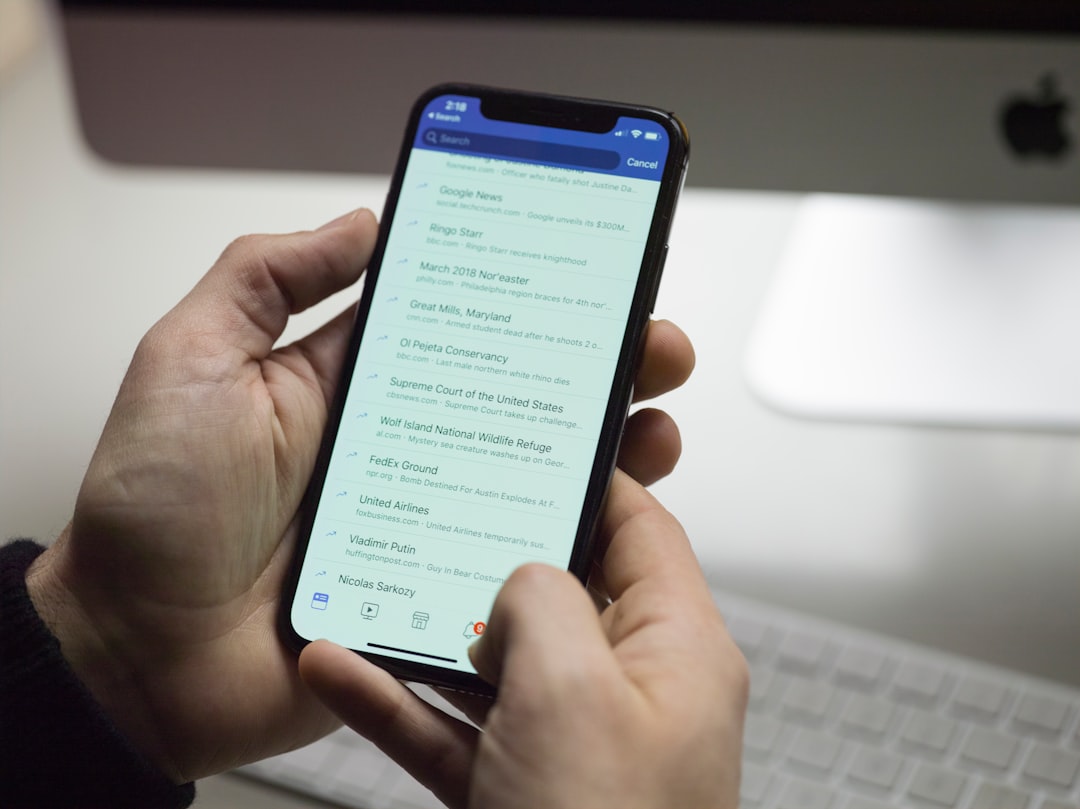Artificial Intelligence (AI) has revolutionized the advertising industry, providing marketers with powerful tools to reach their target audiences more effectively than ever before. One platform that has fully embraced the potential of AI in advertising is Facebook. With its vast user base and sophisticated algorithms, Facebook has become a key player in the AI advertising landscape. Understanding the role of AI in Facebook ads is crucial for marketers looking to stay ahead of the curve and maximize their advertising efforts.
Key Takeaways
- Artificial intelligence is becoming increasingly prevalent in advertising.
- AI can help optimize Facebook ads and personalize them at scale.
- Predictive analytics and machine learning can improve ad performance.
- Automated ad creation and delivery can save time and resources.
- Ethical considerations must be taken into account when implementing AI in advertising.
The Rise of Artificial Intelligence in Advertising
AI has fundamentally changed the way advertising is done, allowing for more targeted and personalized campaigns that drive better results. By leveraging machine learning algorithms, AI can analyze vast amounts of data to identify patterns and make predictions about consumer behavior. This enables advertisers to deliver highly relevant ads to the right audience at the right time, increasing the likelihood of engagement and conversion.
One example of AI-powered advertising is programmatic advertising, where AI algorithms automate the buying and placement of ads in real-time based on data insights. This allows advertisers to reach their target audience across multiple channels with precision and efficiency. Another example is dynamic creative optimization, where AI dynamically generates ad creatives based on user data to deliver personalized messages that resonate with individual users.
Understanding the Role of AI in Facebook Ads
Facebook has fully embraced AI in its advertising platform, using machine learning algorithms to optimize ad delivery and performance. Through its advanced targeting capabilities, Facebook can help advertisers reach specific demographics, interests, and behaviors with precision. By analyzing user data and interactions, Facebook's AI can predict which users are most likely to engage with an ad, allowing advertisers to maximize their RO
| Metrics | Values |
|---|---|
| Number of personalized ads served per day | 10 million |
| Percentage increase in click-through rates for personalized ads | 29% |
| Percentage increase in conversion rates for personalized ads | 49% |
| Percentage of marketers using AI for personalization | 61% |
| Percentage of consumers who prefer personalized ads | 80% |
One key benefit of using AI in Facebook ads is the ability to automate the optimization process. Advertisers can set campaign objectives, budgets, and targeting parameters, and let Facebook's AI algorithms do the rest. This not only saves time and resources but also ensures that ads are continuously optimized for better performance. Additionally, AI can provide valuable insights into campaign performance, allowing advertisers to make data-driven decisions to improve results.
Personalization at Scale: How AI is Changing the Advertising Game

AI enables personalization at scale by analyzing user data and behavior to deliver tailored messages to individual users. This level of personalization goes beyond demographics or interests, allowing advertisers to create highly relevant and engaging ads that resonate with their target audience. By leveraging AI-powered tools like predictive analytics and dynamic creative optimization, advertisers can deliver personalized experiences that drive higher engagement and conversion rates.
For example, AI can analyze user interactions with ads in real-time to deliver personalized recommendations or offers based on their preferences. This not only enhances the user experience but also increases the likelihood of conversion. By delivering the right message to the right person at the right time, advertisers can build stronger relationships with their audience and drive long-term loyalty.
The Power of Predictive Analytics in Facebook Ads
Predictive analytics plays a crucial role in Facebook ads by forecasting future outcomes based on historical data and trends. By analyzing user behavior and engagement patterns, Facebook's AI algorithms can predict which users are most likely to take a specific action, such as making a purchase or signing up for a newsletter. This allows advertisers to target high-value users more effectively and optimize their campaigns for better results.
One key benefit of using predictive analytics in Facebook ads is the ability to allocate budgets more efficiently. By identifying which audiences are most likely to convert, advertisers can focus their resources on those segments to maximize RO
Additionally, predictive analytics can help advertisers identify trends and opportunities early on, allowing them to stay ahead of the competition and adapt their strategies accordingly.
Leveraging Machine Learning to Optimize Ad Performance
Machine learning plays a critical role in optimizing ad performance by analyzing data in real-time and making adjustments on the fly. Through continuous testing and optimization, machine learning algorithms can identify which ad creatives, targeting options, and placements are driving the best results and adjust accordingly. This iterative process allows advertisers to improve campaign performance over time and achieve their objectives more effectively.
One key benefit of using machine learning in advertising is the ability to automate complex tasks that would be time-consuming or impractical for humans to do manually. By leveraging machine learning algorithms, advertisers can streamline processes like ad creation, targeting optimization, and performance tracking, freeing up time for strategic decision-making. Additionally, machine learning can uncover insights from large datasets that humans may overlook, providing valuable information for optimizing campaigns.
The Benefits of Automated Ad Creation and Delivery
Automated ad creation and delivery streamline the advertising process by automating repetitive tasks like ad design, copywriting, and placement selection. By using AI-powered tools like ad generators or dynamic creative optimization, advertisers can create personalized ads at scale without manual intervention. This not only saves time but also ensures consistency across campaigns and improves overall ad quality.
One key benefit of using automation in advertising is the ability to test multiple variations quickly and efficiently. By running A/B tests or multivariate tests on ad creatives or targeting options, advertisers can identify which elements are driving the best results and optimize accordingly. This iterative approach allows advertisers to continuously improve their campaigns and achieve better performance over time.
The Future of Advertising: How AI is Shaping the Industry
The future of advertising is closely tied to AI technology, as it continues to evolve and shape the industry in new ways. As AI becomes more sophisticated and accessible, advertisers will have access to powerful tools that enable them to create more personalized, targeted campaigns that drive better results. From predictive analytics to automated ad creation, AI will play a central role in shaping the future of advertising across all channels.
One prediction for the future of AI in advertising is the rise of voice search optimization as more consumers use voice-activated devices like smart speakers or virtual assistants. Advertisers will need to adapt their strategies to optimize for voice search queries and deliver relevant ads through these channels. Additionally, AI-powered chatbots will become more prevalent in customer service and marketing efforts, providing personalized experiences for users at scale.
Overcoming the Challenges of AI Implementation in Advertising
While AI offers many benefits for advertisers, there are challenges associated with implementing these technologies effectively. One challenge is data privacy concerns, as advertisers must ensure they are collecting and using user data ethically and transparently. Another challenge is talent acquisition, as companies may struggle to find skilled professionals who can leverage AI tools effectively in their advertising efforts.
To overcome these challenges, advertisers should invest in training programs for their teams to build expertise in AI technologies and data analytics. Additionally, partnering with trusted vendors or agencies that specialize in AI advertising can help bridge any skill gaps and ensure successful implementation of these tools. By prioritizing transparency and compliance with data regulations, advertisers can build trust with consumers and mitigate potential risks associated with using AI in advertising.
The Ethical Considerations of AI in Advertising
As AI becomes more prevalent in advertising, ethical considerations become increasingly important for marketers to address. One ethical concern is algorithmic bias, where AI systems may inadvertently perpetuate stereotypes or discrimination based on biased data inputs. Advertisers must be vigilant about monitoring their algorithms for bias and taking steps to mitigate any negative impacts on marginalized groups.
Another ethical consideration is transparency in data collection and usage practices. Advertisers should be clear about how they collect user data, what it will be used for, and provide users with options for opting out if they choose. By being transparent about their practices and respecting user privacy rights, advertisers can build trust with consumers and demonstrate a commitment to ethical use of AI technologies.
How to Stay Ahead of the Curve with AI-Powered Facebook Ads
To stay ahead of the curve with AI-powered Facebook ads, marketers should prioritize ongoing education and training on new technologies and best practices in digital advertising. Keeping up-to-date with industry trends and advancements in AI will help marketers leverage these tools effectively in their campaigns and stay competitive in a rapidly evolving landscape.
Additionally, marketers should test new features and functionalities offered by Facebook's advertising platform regularly to identify opportunities for optimization and improvement. By experimenting with different targeting options, ad formats, or bidding strategies, marketers can uncover insights that drive better results and keep their campaigns fresh and engaging for audiences.
In conclusion,
Understanding how AI is changing the advertising landscape is crucial for marketers looking to maximize their efforts on platforms like Facebook where advanced algorithms drive ad delivery success rates higher than ever before.
By leveraging predictive analytics tools within Facebook's platform or utilizing machine learning algorithms for optimizing ad performance metrics such as click-through rates (CTR) or conversion rates (CVR), businesses can gain a competitive edge over competitors who aren't utilizing these technologies.
As we look towards the future of advertising powered by artificial intelligence (AI), it's clear that staying ahead of trends will be essential for success - whether through personalization at scale initiatives enabled by dynamic creative optimization techniques or automated ad creation processes driven by machine learning algorithms.
By understanding both the benefits as well as challenges associated with implementing these technologies ethically within our marketing strategies today - we can ensure long-term success while building trust among consumers who increasingly demand transparency around how their data is being used online.
By following these tips for staying ahead of the curve with AI-powered Facebook ads - marketers can position themselves as leaders within this rapidly evolving industry while driving better results through smarter targeting strategies enabled by advanced algorithms now available at our fingertips.
By staying informed on the latest trends and updates in AI technology, marketers can leverage the power of machine learning to optimize their Facebook ad campaigns for maximum impact. By continuously testing and refining their strategies based on data-driven insights, marketers can stay ahead of the competition and deliver more personalized and relevant content to their target audience. This proactive approach not only improves campaign performance but also enhances the overall customer experience, ultimately leading to increased brand loyalty and long-term success in the digital advertising landscape.

